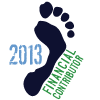[quote="scedastic]
What's the point in testing something that doesn't pass plausibility criteria?
[/quote]
Well, I would say the point is to be open to the possibility that my perception of plausibility criteria might be wrong:
For centuries the most advanced academics of their time had convincing plausibility criteria (=their perception) that it was the sun turning around the earth and not the other way round...
Until the invention of microscopes the idea of the existence of germs being responsible for illnesses was being laughed at by the highest medical authorities of the time, because this strange idea did not fit into their plausibility criteria...
The scientific truths of yesterday are not the truths of today. The scientific truths of today are quite possibly not the truths of tomorrow...
What's the point in testing something that doesn't pass plausibility criteria?
[/quote]
Well, I would say the point is to be open to the possibility that my perception of plausibility criteria might be wrong:
For centuries the most advanced academics of their time had convincing plausibility criteria (=their perception) that it was the sun turning around the earth and not the other way round...
Until the invention of microscopes the idea of the existence of germs being responsible for illnesses was being laughed at by the highest medical authorities of the time, because this strange idea did not fit into their plausibility criteria...
The scientific truths of yesterday are not the truths of today. The scientific truths of today are quite possibly not the truths of tomorrow...

































